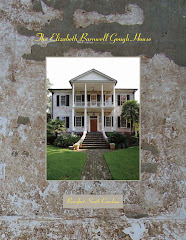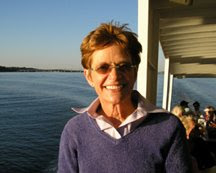.jpg)
Like many of the early settlers in South Carolina, Richard Gough’s grandfather, John Gough, came to Charles Town from Barbados. His original land grant, dated October 12, 1709 included 3500 acres, part of the Barony of Thomas Colleton, in an area known as Goose Creek.
Born November 1750, Richard Gough was the son of John Gough’s second son Richard and wife Rachel Keating. Richard Sr. presumably enjoyed more than moderate success as a planter for his will directed that his son Richard be educated in England upon reaching the age of thirteen.
Why Elizabeth Barnwell’s family objected to her attachment to Richard Gough remains a cause of speculation. In social standing, financial status and political allegiance, Richard would have been an appropriate match for Elizabeth.Richard, like Elizabeth’s brothers, had aligned himself with the patriot cause even before the Revolution. Like Elizabeth’s brothers John, Robert and Edward, Richard served throughout the Revolution without wavering. Richard, also like the brothers, was a voice for moderation in the treatment of those who had been forced to change sides to protect their families or property during the war. Once again like them, he enjoyed the high regard of his peers for his brave and valuable service during the Revolution. Richard served as a Captain in the brigade of South Carolina’s most famous Revolutionary War hero, General Francis Marion, who was known as the “Swamp Fox” for his brilliant and elusive guerrilla tactics.
The most probable cause for the Barnwells’ objection to Richard Gough was his character. His spiteful and acrimonious nature is born out not just in the tales passed down, but also by his will of October 1791. He states in a clear attempt to prevent Elizabeth from securing funds rightfully due her:
“I give and bequeath unto Elizabeth Gough my Wife the Sum of Fifty pounds Sterling in lieu, compensation and final Extingishment of her Dower or Thirds and all and every other her rights, Titles, Claims, or demands whatever, of into, against or out of my Estate either real or Personal Item I give and bequeath unto Mary Ann Daughter of Elizabeth Gough my Wife, Fifty pounds and it is my particular Will, desire and Intention that the said Mary Ann shall not inherit any part or parts of my Estate either real or personal but the Fifty pounds given as above.”
The fact that the will was executed just two months prior to Marianna’s marriage together with his reference to “Mary Ann” as Elizabeth’s daughter, not his or “our” daughter prompts the inference that he was attempting to deny not just any financial claims Marianna would have (or her future husband would have on her behalf) but also any parental connection.
The will goes on to bequeath three slaves to a goddaughter and his cattle, horses and sheep to Keating Simons. The bulk of his sizable estate he gave to his mother for her lifetime and after her death to his godson Edward Simons, son of Keating Simons. Described in his will as his friend, Keating Simons was also the executor for Richard’s will and a cousin from Richard’s mother’s side of the family.Richard Gough died at his plantation in St. James Parish February 2, 1796.
Please note that the material in this blog is copyrighted. It is not to be reproduced without my specific written permission.
.jpg)
